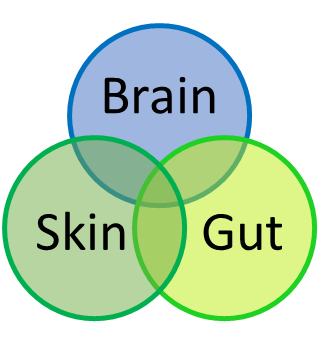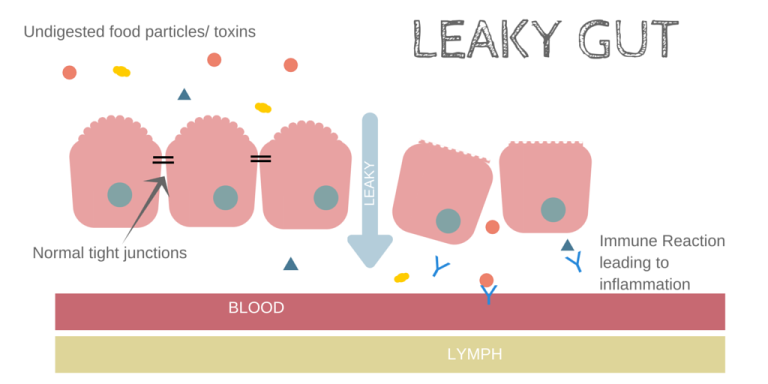The Gut-Brain-Skin Theory
In addition to skin being the biggest detox organ, it also acts as a barrier and protector.
When your digestion is off, or the toxins are not being eliminated properly, your skin jumps in, often showing signs in the form of a rash or skin problem.
Although it’s possible to have skin issues, such as acne, and not have gut issues, it is very rare.
This relationship between gut balance and clear skin can be traced back to 1930, when dermatologists John H. Stokes and Donald M. Pillsbury first proposed a gut-brain-skin unifying theory, connecting altered gastrointestinal tract function, emotional states (stress, depression, worry and anxiety) and skin conditions such as acne.

The functional integrity and microbial residents of the intestinal tract play a mediating role in both skin inflammation and emotional behaviour.

Stokes and Pillsbury hypothesized that less than adequate stomach acid (hypochlorhydria) would set the stage for migration of bacteria from the colon towards the distal portions of the small intestine, as well as an alteration of normal intestinal microflora. Furthermore, they suggested that stress-induced alterations to microbial flora could increase the likelihood of intestinal permeability (i.e. “leaky gut”), which in turn sets the stage for systemic and local skin inflammation.

Read my “Gut & Disease” article for more information on leaky gut.

The remedies that were used by Stokes and Pillsbury is now a widely known and popular bacteria, Lactobacillus acidophilus, also known as the most common strain of probiotic on the market.

The second remedy they used was cod liver oil, a rich source of omega-3 fatty acids. Cod liver oil is great for skin conditions as it is rich in vitamins A and D, which directly impact the health of the skin.
We know now that the reason this remedy works is because a healthy gut is where 70-80% of your immunity is. If you have a well functioning digestion system, your overall health is probably very good and your overall inflammation is likely to be quite low.
